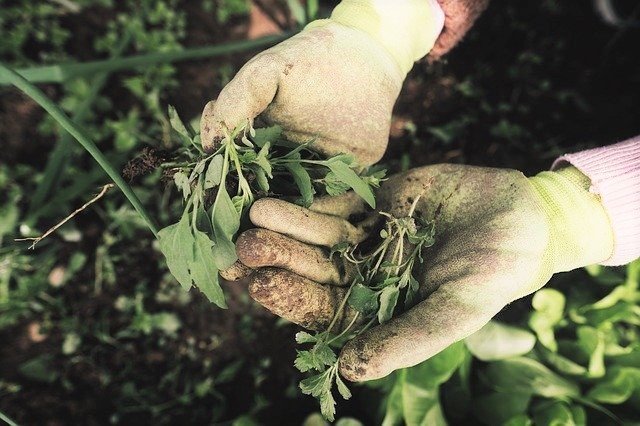What Are The Benefits Of Using Organic Methods To Control Garden Slugs?
Aphids are pesky little creatures that can wreak havoc on your garden. You've probably noticed them before - small, soft-bodied insects that feed on the sap of your plants. Not only can they cause damage to your plants, but they can also attract other pests and diseases. If you're dealing with an aphid infestation, there are plenty of organic methods that can help get rid of them.

Why You Should Use Organic Methods
Before we dive into the specific methods for getting rid of aphids, it's important to understand why you should use organic methods instead of chemical pesticides.
- Chemical pesticides can kill beneficial insects, like bees and ladybugs, that help your garden thrive.
- Chemical pesticides can also harm human health. Exposure to pesticides has been linked to health problems like cancer, neurological issues, and reproductive problems.
- Chemical pesticides can build up in the environment over time and cause long-term damage to ecosystems.
Organic methods, on the other hand, are safer for the environment and for your own health. They work with nature, instead of against it, and can help you maintain a healthy, thriving garden without harmful chemicals.
12 Organic Methods for Getting Rid of Aphids
Now that you understand the importance of using organic methods, let's look at 12 different methods for getting rid of aphids in your garden.
1. Blast them with water
Aphids are soft-bodied insects, which means they are relatively fragile. You can use a strong stream of water to blast them off your plants. This method is especially effective if you catch the infestation early, before it has a chance to get out of control.
2. Use insecticidal soap
Insecticidal soap is a type of soap that is specifically designed to kill insects like aphids. It works by disrupting the cell membranes of the insects, causing them to dehydrate and die. You can buy insecticidal soap at most garden centers and online.
3. Spray them with neem oil
Neem oil is a natural insecticide that is derived from the seeds of the neem tree. It works by disrupting the hormones of the insects, making it difficult for them to breed and eat. Neem oil is safe for humans, pets, and beneficial insects like bees and ladybugs.
4. Use reflective mulch
Reflective mulch is a type of mulch that is designed to reflect light back onto your plants. This can help to confuse and disorient aphids, making it difficult for them to find your plants and feed on them. You can buy reflective mulch at most garden centers and online.
5. Introduce ladybugs
Ladybugs are natural predators of aphids. They feed on aphids and can help keep their populations in check. You can attract ladybugs to your garden by planting flowers that they like, such as marigolds and sweet alyssum.
6. Use a garlic spray
A garlic spray is a natural insecticide that can help repel aphids from your plants. To make a garlic spray, blend one garlic bulb with one quart of water, strain the mixture, and add a spoonful of dish soap. Spray the mixture on your plants once a week.
7. Plant companion plants
Companion planting is the practice of planting certain plants together in order to benefit each other. Some plants are natural repellents for aphids, including garlic, chives, and onions. By planting these plants alongside your other vegetation, you can help deter aphids from coming near.
8. Use a vinegar solution
A vinegar solution is another natural remedy for aphids. Mix one part vinegar with three parts water and a spoonful of dish soap. Spray the mixture on your plants once a week to help repel aphids.
9. Introduce lacewings
Lacewings are another natural predator of aphids. They feed on aphids, mites, and other small insects. You can attract lacewings to your garden by planting flowers that they like, such as cosmos and zinnias.
10. Practice crop rotation
Crop rotation is the practice of planting different crops in different areas of your garden each year. This can help prevent aphids and other pests from building up in the soil. By rotating your crops, you can help maintain a healthy and pest-free garden.
11. Create a barrier
You can create a physical barrier around your plants to keep aphids out. You can use things like row covers, netting, or even sticky traps to help keep aphids away from your plants.
12. Attract birds
Birds are natural predators of aphids. You can attract birds to your garden by providing them with food, water, and shelter. You can also plant native plants that provide food and habitat for birds.
In Conclusion
Dealing with an aphid infestation in your garden can be frustrating, but there are plenty of organic methods that can help get rid of them. From blasting them with water to introducing natural predators, there are a variety of methods that you can use to keep your garden healthy and thriving. By using organic methods, you can help protect the environment and your own health, while still maintaining a beautiful garden.



